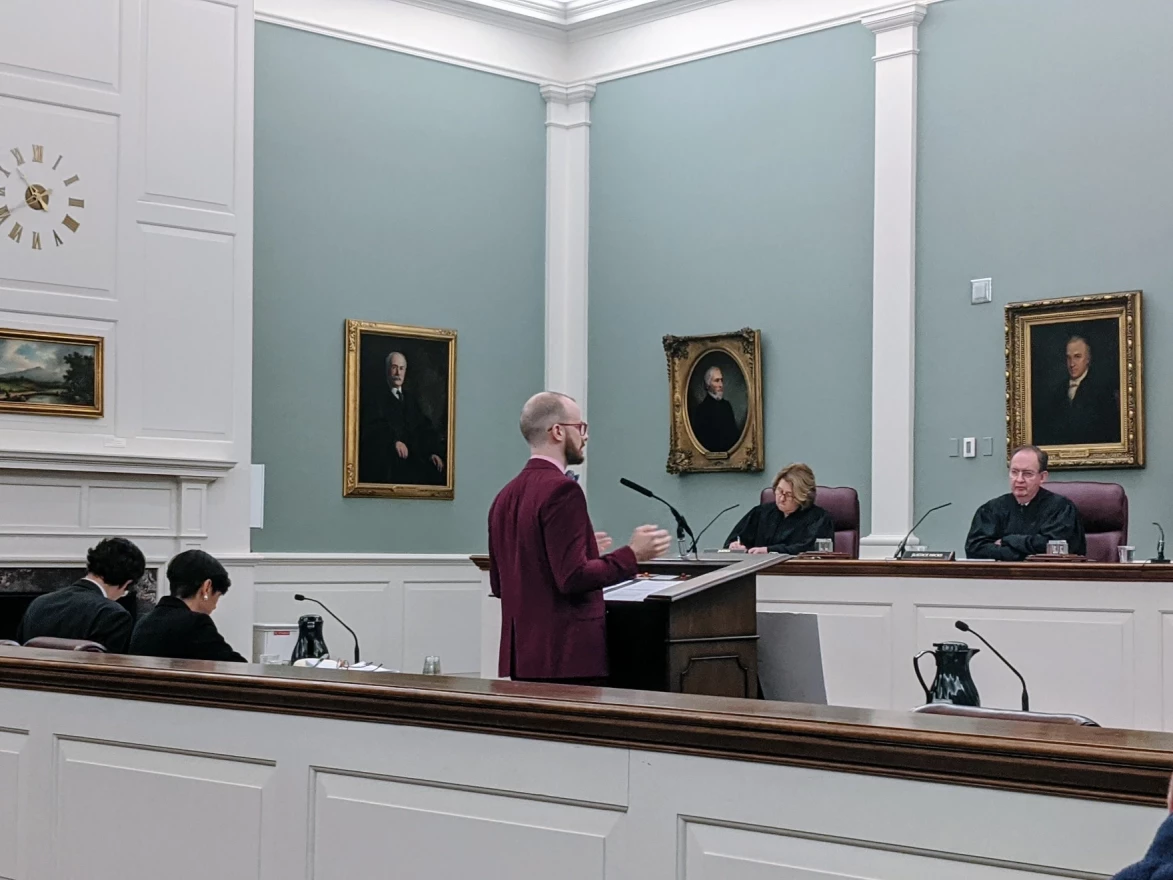A New Hampshire cafe owner has won a court case against tech giant Meta, formerly known as Facebook. Emmett Soldati filed a small claims complaint against Facebook back in 2018 when the business account for his cafe, Teatotaller, was suddenly deleted from Instagram.
NHPR’s Morning Edition host Rick Ganley spoke with Soldati about the details of the case. NHPR reached out to Meta's legal representation for comment but has not yet heard back.
Transcript
Emmett, Instagram sent you conflicting messages about why your account was deleted. Is that right?
Yeah, so back in 2018, we had had an account for several years at that point for our business and went to log in in June of 2018 and could not get into the account. And we first got a message that suggested we had deleted it. And we obviously didn't and tried to learn more. And we then got an alternative message from Facebook, which owned Instagram, saying they deleted it because we had violated some community standard of which we didn't know of and certainly didn't think we did.
And as anyone that's dealt with Facebook for this type of incident will know, you can't reach anyone at Facebook. You go to the Help Center, and it's this labyrinth of FAQs that ultimately gets you back to the same place, and there's really no recourse or remedy.
Obviously, that was six years ago, and I've since learned of several account holders, including business owners that have professional accounts that pay money to Facebook to advertise, that they've lost their account with really no reason or cause that's been explained to them.
We need to point this out for listeners that may not understand: This isn't just a personal account. This is your business account. You use this to promote your business, promote special events going on, and you do pay Facebook money for this account.
Absolutely. This is the digital age and 21st century marketing for any small business where you're advertising that account or an event or a special, and that's growing that account, that's building followers and connections. So when we lost our account, when it was deleted by Facebook, we [lost] all those connections, all of those followers, all of that content that we had spent real money as well as time developing.
So you took Meta to court. You represented yourself?
Yeah. So in the terms of use, when you sign up for Instagram, it says, “Click here to accept the terms.” That is mostly a list of things you can't do. You can't file a class action lawsuit, you can't bring them to Superior Court. But there was one small provision that says you reserve the right to bring a claim in your local small claims court. And so I filed a claim at the Dover District Court, didn't have a lawyer. And at the time I just thought, “This is a small claim. I just want my account back. I've spent a couple thousand dollars advertising and building it. Hopefully they'll finally reach out and realize the wrong and correct it.” That ended up being a six-year legal battle.

That's an awful lot of work, a lot of time. What did you end up getting?
It had been dismissed. It then went to the Supreme Court of New Hampshire. I won that case, again representing myself, which ultimately allowed me to have that hearing in the small claims court in Dover. That happened last year. And the judge determined and made a judgment that just happened last month, that I, the plaintiff, won and that I did have a claim for breach of contract and that Facebook failed to provide any reason and they did owe me as a business that account, that they can't just delete accounts arbitrarily and that they are not immune from other types of protections. So the judge awarded me what they described as a nominal fee of $100, as well as any court costs that I may have incurred or paid, and interest payments knowing that this is a six-year case.
I imagine you were thinking about the bigger implications of this case.
Again, I'm not a lawyer. I have learned over the last six years [that] they have obviously received lots of claims of users saying, “Hey, you did something wrong.” And every single time they have gotten that claim dismissed and thrown out. Oftentimes they appeal to a federal statute, which is called the Communications Decency Act, Section 230, that they and other tech companies and other social media companies have used again and again and again to say, “We are actually immune from claims of our users. We're just a publisher. We're just a website. We're just a newspaper. We get to make these sort of arbitrary decisions about content. And so even if a user is a paying customer, we actually don't owe them anything, and we certainly don't owe them a day in court.”
This small claim is maybe one of the only examples that I've certainly come across in the last six years of reviewing this kind of material, where a court definitively said, “You are not immune when a user claims that you have done something wrong and you owe them an explanation.”



